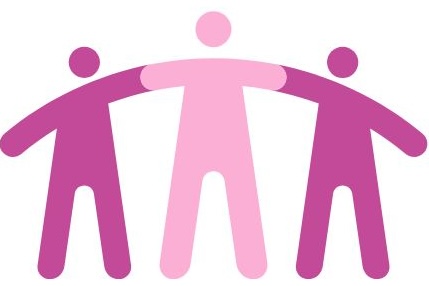 By Julia Loeb, WLCJ International President
By Julia Loeb, WLCJ International President
Brew Harmony not Drama—Lessons from Tazria-Metzora
Parashat Tazria-Metzora is not the easiest Torah portion to connect with. The discussion of skin conditions (often translated as leprosy), isolation, and purity laws is not your typical Shabbat table conversation. But beneath the surface (pun intended), there’s a profound message about leadership, responsibility, and the power of community, values that resonate deeply with us at Women’s League.
One of the central themes in this parashah is the role of the kohen (priest) in examining and guiding those affected by these afflictions. The kohen wasn’t just an ancient dermatologist; he was a spiritual guide, offering not only a diagnosis but also emotional and communal reintegration. That’s leadership in a nutshell, having the wisdom to assess a situation, the patience to deal with challenges, and the compassion to help others find their way back.
As leaders, we too face challenges that don’t always have simple solutions. Whether planning programs for our Sisterhoods, engaging in Torah Fund initiatives, or advocating for causes that uphold Jewish values, we are like modern-day kohanim, fostering inclusion, providing support, and helping our members find their voices.
Tazria-Metzora also reminds us about the power of words. Rabbinic tradition the skin conditions, or tzara’at, to lashon hara, negative speech. Apparently, gossip was as much of an issue then as it is now! Harmful words can divide a community as easily as any affliction. That’s why, as leaders, we must be mindful of how we communicate. Encouragement, honesty, and empathy strengthen the bonds of our Sisterhood, while negativity and gossip can unravel everything we work so hard to build.
We’ve all seen it happen, the infamous parking lot discussions, when the official meeting is over, but the real “meeting” begins outside. Someone casually says, “Did you hear what she said during the meeting?” Before you know it, a full-blown debate (or worse, a drama-filled debrief) is unfolding between the parked cars. While these conversations often start innocently, they can quickly turn into lashon hara, sowing division instead of unity. And let’s be honest, this is where “spilling the tea,” as our children or grandchildren say, often happens. We can’t wait to share the latest scoop in the name of venting or bonding, but if we’re not careful, that “tea” can scald! Leadership means making sure that the conversations happening in the parking lot are just as constructive as the ones inside the building. Instead of fueling gossip, we can redirect those discussions toward solutions, understanding, and reinforcing the bonds of our community.
There’s a story I’ve read about crumpling a piece of paper. If you crunch it up in your hand and then try to smooth it out again, no matter how carefully you do it, it never quite goes back to the way it was. The wrinkles and damage remains. It’s a simple but striking visual for what happens when we use hurtful words. Even if we apologize, the impact can linger. As leaders, we have a responsibility to model thoughtful and intentional speech, knowing that our words can either uplift or leave a lasting mark.
In Women’s League, we embrace the lessons of this parashah by lifting each other up, creating spaces of healing, and leading with integrity. Just as the kohen sought to bring individuals back into the community, so too must we work to ensure that every woman finds a place where she belongs, feels valued, and can contribute to our collective strength.
 Let’s commit to leading with wisdom, speaking with kindness, and avoiding gossip like it’s a skin condition. Because although we sometimes oolong to “spill the tea” we need to stay a chamomile away from lashon hara!
Let’s commit to leading with wisdom, speaking with kindness, and avoiding gossip like it’s a skin condition. Because although we sometimes oolong to “spill the tea” we need to stay a chamomile away from lashon hara!
Shabbat Shalom,
Julia Loeb
WLCJ International President
jloeb@wlcj.org








